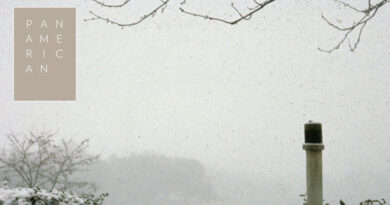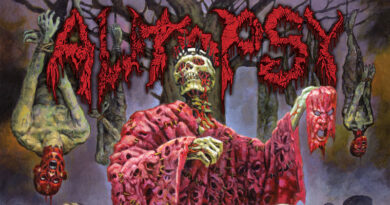Nibiru ‘Netrayoni’ CD/DD 2014
 A bell chimes, to indicate the opening of the ceremony. A buzzing tone creeps forth, samples ring out around it, welcome to the rituals of Nibiru. This is their album ‘Netrayoni’, which the band claims is fully improvised.
A bell chimes, to indicate the opening of the ceremony. A buzzing tone creeps forth, samples ring out around it, welcome to the rituals of Nibiru. This is their album ‘Netrayoni’, which the band claims is fully improvised.
These Italians formed in Turin as a three piece and tend to abuse their speakers a lot. They call their music tribal and psychedelic, with Enochian vocals. Their first record was called ‘Caosgon’ and was well received. Like their band name says, these guys try to get you into their river of sound. Nibiru means “crossing” or “point of transition” in the ancient Akkadian language. So we are crossing the river with Nibiru‘s wild sounds into a two part album. ‘Ritual I’ and ‘Ritual II’, a slow and heavy descent into the water.
Slowly the sounds stream by on ‘Kshanika Mukta‘, dulling the senses in a sonic stream with vocals that sound more like a moan of despair dragged out in an eternal composition of distorted sound patterns. Patterns that are constant, unchanging. The band uses the word sludge, but that’s sludge written in quicksand with chewed out chewing gum bits, that’s about how sludgy it is. When the drums speed up after eleven minutes (and speeding up is as relative here as you’d expect), they sound distant, like your ears are blocked.
The same goes for ‘Apsara‘, which keeps on that bass driven driftwood style of sound waves. A smooth gliding sound, fuzzy with noise and pretty mush just heavy. It doesn’t feel that way though, the listener floats along. On ‘Sekhet Aahru’ a change takes place and riffs as slow and steady (and heavy!) as glaciers slide by. At the end of some glorious work on that rhythm, the song ends in distortion with a spoken word sample. These guys love their samples, that’s for sure.
The opening minutes of ‘Qaa-Om Sapah‘ are like a sonic hallucination, a trip with disfigured sounds clawing around in the air. Then the drums start and a fuzzed out guitar starts a spaced out jam with soaring guitars and angry vocals. The song spins around those and starts feeling constrictive, nervous and unpleasant. The dissonant tones finally collapse and chant-like singing follows in its wake. After a hefty drum session, the song ebbs away in a bass drone. ‘Arkashani‘ closes of the first ritual, the drone is cut out this time for a song that feels much cleaner and clearer. Biting screams over waving guitars and a tribal drum form the setting for this outro.
The second ritual is more enthralling, more hazy and droning on ‘Kwaw-Loon‘. Slowly the sound proceeds, reminding the listener of the likes of OM. The vocals are less harsh, though deformed and it’s like auto tune was used right here. The follow up ‘Sekhmet‘ is hypnotic and this part of the record easily feels like a dreamy path.
Vocalist Ardath sounds like a high priest from ancient times, lost in history, when he chants his mystic words to the slow rhythm of ‘Celeste: Samsara Is Broken‘. The song is calmer, the band is at peace with the riff they found and ride it for minutes. The organ played by RI is peeping through the thick streams of guitar sound now and then, giving it that spiritual vibe the band is looking for. The song soars upward later, becoming one of those hectic improvisations, with a remarkable calm at the centre of the storm with the clear, thudding drums. In the end the chanting fades and the riffs calm down again.
The reverberating sounds in ‘Viparitea Karani‘ signal the next phase of the ritual that is taking place. Creeping and heavy hitting the song paces onwards, while swirling sounds open up the cosmos. ‘Sothis‘ is then merely the closing ceremony to the ritual. Haunting voices echo, while an eerie tone like those on Burzum records could be found, fill the air.
Nibiru’s album is truly the meditative trip that they promise. Beware what you start though, it’s a long ride and one could argue if taking the best of both ‘Ritual I ‘and ‘Ritual II’ would not have been a better record than this. In the end, it’s a matter of taste of course.
Label: Self Released
Band Links: Official | Facebook | Bandcamp
Scribed by: Guido Segers



